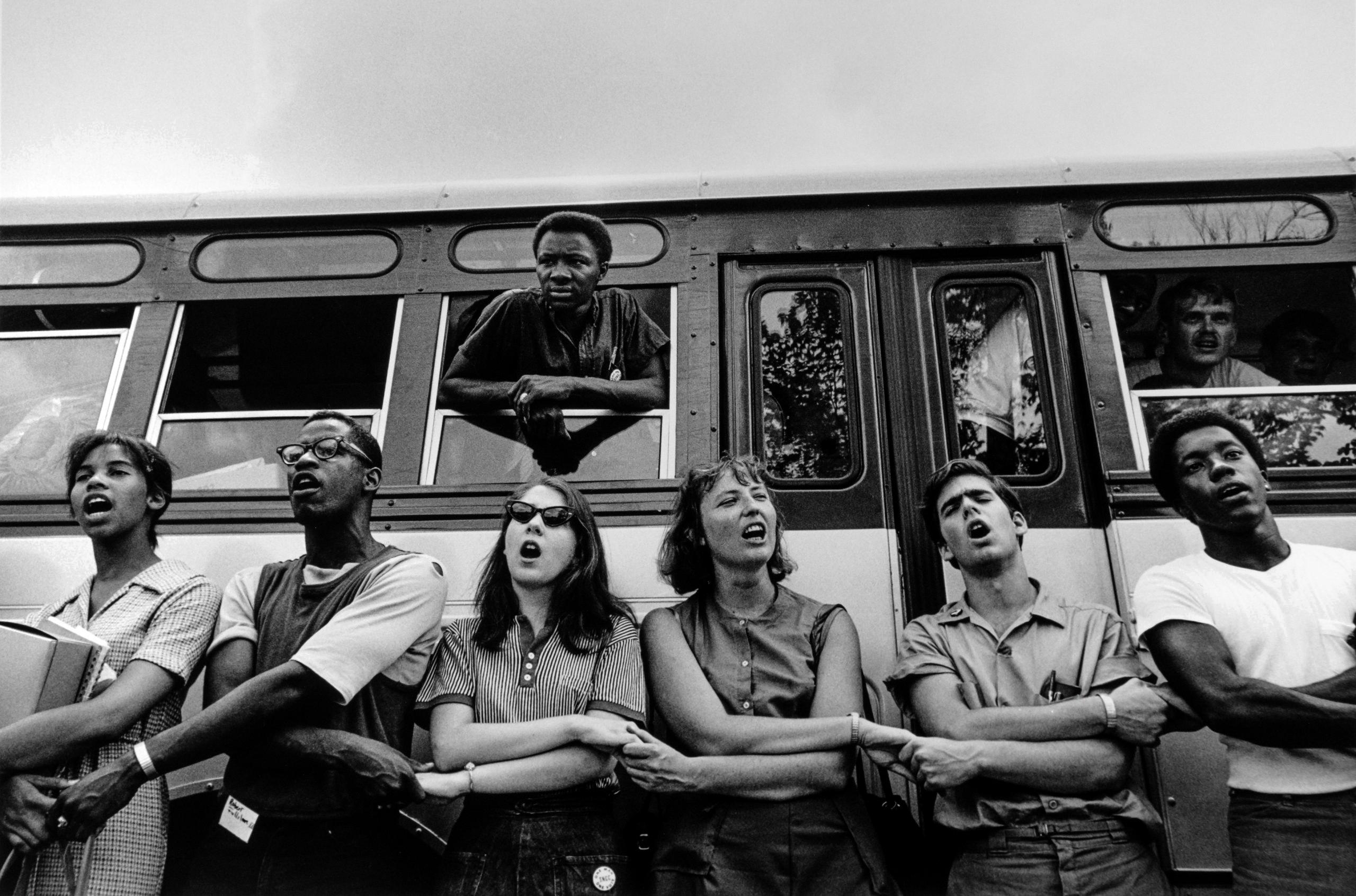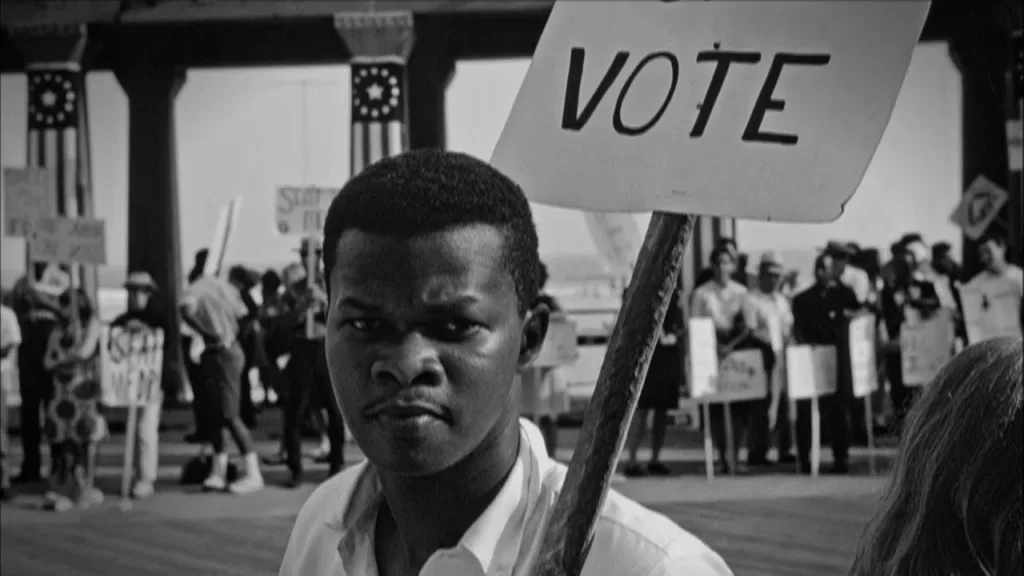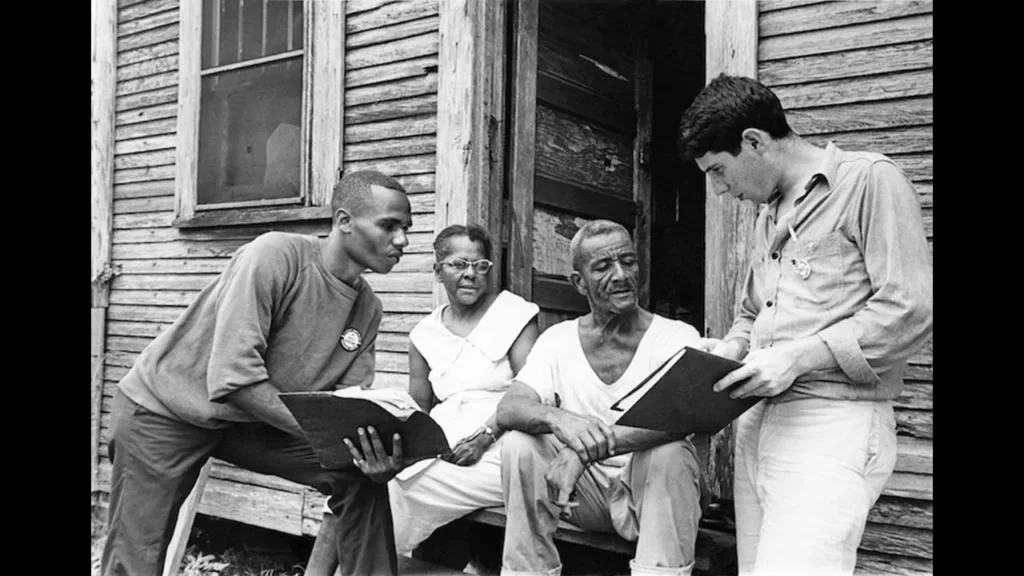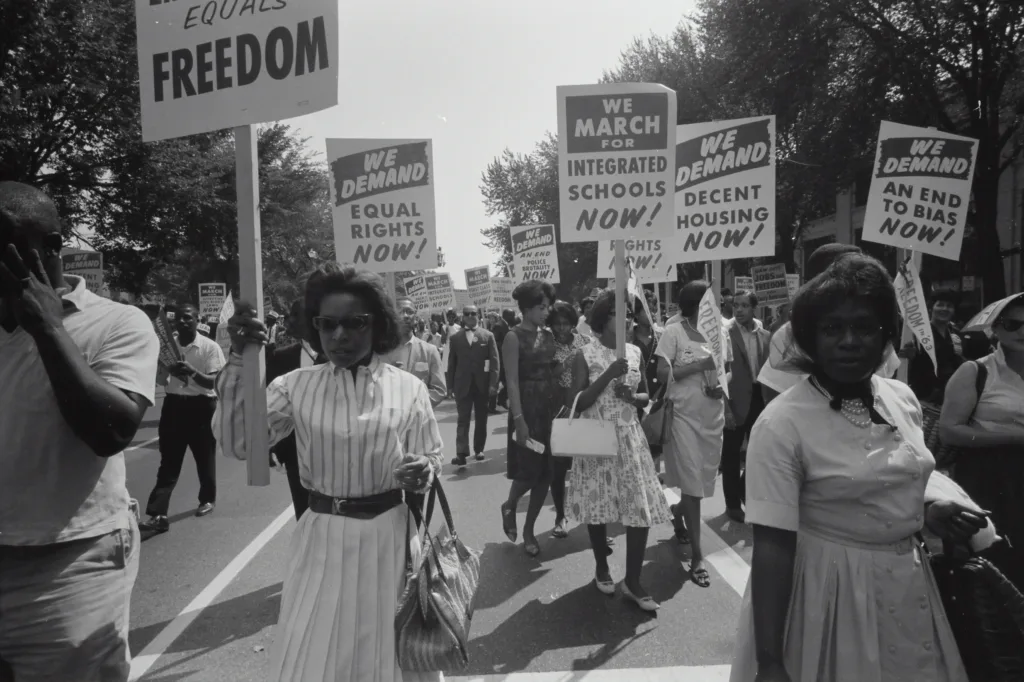The Freedom Summer Campaign of 1964 in Mississippi was a significant moment in the fight for Civil Rights in the United States. The campaign was launched to register as many African American voters as possible in Mississippi, where African American voters had been almost entirely outlawed.
The campaign saw over a thousand northern black and white college students head to Mississippi in the summer of 1964 to conduct voter registration drives. However, the campaign was met with intense opposition from those who opposed the Civil Rights Movement.
During the campaign, 1,062 people were arrested, 80 Freedom Summer workers were beaten, 37 churches were bombed or burned, and 30 Black homes or businesses were bombed or burned. Four civil rights workers were killed, and at least three Mississippi African Americans were murdered because of ther involvement in the campaign.
Despite the violence and intimidation, the Freedom Summer campaign raised the consciousness of millions of people to the plight of African-Americans and the need for change. The Civil Rights Act of 1964 and the Voting Rights Act of 1965 passed Congress in part because lawmakers’ constituents had been educated about these issues during Freedom Summer.
The campaign was a turning point in the Civil Rights Movement, as it brought national attention to the injustices faced by African Americans in Mississippi and other parts of the country. The campaign also demonstrated the power of grassroots organizing and the determination of those who fought for justice and equality.
The Freedom Summer Campaign of 1964 in Mississippi was a significant moment in the history of the Civil Rights Movement. The campaign was met with violence and intimidation, but it also brought attention to the injustices faced by African Americans and helped to pass important laws that protected their rights. The campaign serves as a reminder of the power of grassroots organizing and the importance of continuing to fight for justice and equality.
The Impact of the Freedom Summer Campaign of 1964 in Mississippi
The Freedom Summer campaign of 1964 was a major civil rights initiative aimed at increasing voter registration and political participation among African Americans in Mississippi. During this campaign, many volunteers and activists, both black and white, faced violent opposition and discrimination from the state government and local communities.
Over 1,000 people were arrested, and 80 Freedom Summer workers were beaten while attempting to register voters and conduct education programs. Additionally, 37 churches were bombed or burned, and 30 Black homes or businesses were also targeted.
Tragically, four civil rights workers were killed during the campaign, including James Chaney, Andrew Goodman, and Michael Schwerner, who were abducted and murdered by members of the Ku Klux Klan. At leat three Mississippi African Americans were also killed because of their involvement in the campaign.
Despite the violence and intimidation, the Freedom Summer campaign ultimately succeeded in increasing voter registration and drawing attention to the ongoing struggle for civil rights in the United States. The campaign also helped to inspire further activism and political mobilization among African Americans in Mississippi and throughout the country.

Source: cincinnatimagazine.com
The Impact of the Freedom Summer Campaign of 1964 in Mississippi
The Freedom Summer campaign of 1964 was a historic civil rights movement that aimed to register as many African American voters as possible in Mississippi. During this campaign, which took place during the summer months, civil rights advocates worked tirelessly to challenge the state’s discriminatory laws that had previously outlawed African American voters almost entirely.
The campaign was organized by several civil rights groups, including the Student Nonviolent Coordinating Committee (SNCC) and the Congress of Racial Equality (CORE), and attracted volunteers from across the United States. These volunteers, many of them college students, came to Mississippi to help register voters, run Freedom Schools, and organize community centers.
The campaign was met with fierce resistance from white supremacists, who used violence and intimidation to try to stop the civil rights advocates. Many volunteers were beaten or arrested, and several were murdered, including three young men who were abducted and killed by the Ku Klux Klan.
Despite thse challenges, the Freedom Summer campaign was successful in registering thousands of new voters and bringing attention to the ongoing struggle for civil rights in Mississippi. The campaign also helped to inspire the passage of the Voting Rights Act of 1965, which prohibited voter discrimination and ensured equal voting rights for all Americans.
The Impact of the Freedom Summer of 1964
The result of the Freedom Summer of 1964 was a significant increase in awareness of the struggle for civil rights among African-Americans in Mississippi and throughout the United States. This movement brought tgether young activists from around the country to work alongside local organizers to register black voters, establish freedom schools, and challenge the segregationist power structure. Despite facing significant resistance, including violence and intimidation from local authorities and the Ku Klux Klan, the Freedom Summer campaign succeeded in bringing attention to the issue of voter suppression and helped to pass the Civil Rights Act of 1964 and the Voting Rights Act of 1965. The legacy of Freedom Summer continues to inspire social justice movements around the world today, reminding us of the power of grassroots organizing and the importance of standing up for what is right, even in the face of violence and systemic oppression.
The Immediate Impact of the 1964 Mississippi Freedom Summer Project
The 1964 Mississippi Freedom Summer Project had an immediate impact on the civil rights movement in the United States. The project involved over a thousand northern black and white college students who traveled to Mississippi in the summer of 1964 to conduct voter registration drives and provide educational programs for African Americans.
One of the immediate impacts of the project was the increase in voter registration among African Americans in Mississippi. The project helped to register tens of thousands of new voters, which was a significant achievement given the state’s history of voter suppression and intimidation. The project also brought national attention to the civil rights struggle in Mississippi and helped to mobilize support for the movement.
However, the project also faced significant resistance and violence from local authorities and white supremacist groups. Several participants were beaten, arrested, and even murdered for their activism. These incidents furter highlighted the need for civil rights and voting rights legislation to protect African Americans in the South.
The 1964 Mississippi Freedom Summer Project had a profound and immediate impact on the civil rights movement. It helped to increase voter registration, raise awareness about the struggle for civil rights in the South, and highlighted the need for further action to protect the rights of African Americans.
The Purpose of Freedom Summer in Mississippi
The main purpose of the Freedom Summer project in Mississippi, whch took place in 1964, was to shed light on the oppressive and violent conditions experienced by black citizens who were attempting to exercise their constitutional rights, particularly their right to vote. The project aimed to bring national attention to this issue by bringing in student activists from across the country to engage in voter registration drives, education, and community organizing. The hope was that by highlighting the injustices faced by Mississippi’s black population, a grassroots freedom movement could be developed that would continue long after the project ended. the primary goal of Freedom Summer was to help create lasting change in Mississippi, and ultimately, in the broader civil rights movement.

The Three Main Goals of Freedom Summer 1964
The three main goals of Freedom Summer 1964 were to establish Freedom Schools and community centers throughout the state, to increase black voter registration, and to ultimately challenge the all-white delegation that would represent the state at the Democratic National Convention in Atlantic City. The initiative aimed to provide education and resources to African American communities in Mississippi that had been systematically denied access to quality education and basic human rights. The Freedom Schools were created to teach literacy, history, and political education to young people who had been denied a proper education due to segregation. Voter registration drives were also a critical aspect of the initiative, as black voters had been systematically disenfranchised in Mississippi through tactics such as literacy tests and poll taxes. The ultimate goal was to challenge the all-white delegation that would represent the state at the Democratic National Convention and to demand that the Democratic Party recognize the rights of African Americans and ensure teir representation in the political process.
The Impact of the Freedom Summer of 1964
The Freedom Summer of 1964 was a pivotal moment in the civil rights movement, and its results were significant. One of the most important outcomes of this campaign was the increased awareness it brought to the issue of voter discrimination in the American South. The Freedom Summer activists worked tirelessly to register African American voters in Mississippi, where voter suppression was rampant. The campaign also included the establishment of Freedom Schools, which aimed to provide education and empowerment to Black communities.
The Freedom Summer drew national attention to the issue of civil rights and voter discrimination, and this increased awareness helped to pave the way for the eventual passage of the Voting Rights Act of 1965. This landmark legislation ensured that all citizens, regardless of race, were guaranteed the right to vote wihout discrimination. The Freedom Summer also inspired a new generation of civil rights activists, and it demonstrated the power of nonviolent protest and grassroots organizing in effecting change. the results of the Freedom Summer of 1964 were far-reaching and lasting, and they continue to shape the ongoing struggle for civil rights and racial justice in the United States today.
The Purpose of Mississippi Freedom Summer
The purpose of the Mississippi Freedom Summer project, as highlighted on Quizlet, was to bring national attention to the violent discrimination faced by African Americans in Mississippi who were attempting to exercise their constitutional rights. The project aimed to develop a freedom movement that would continue beyond the summer, and to empower activists to create change in their communities. Additionally, the project sought to register as many African American voters as possible, as voting rights were a crucial aspect of the civil rights struggle. Through the Mississippi Freedom Summer project, student activists worked to challenge the systemic racism and oppression faced by African Americans in Mississippi and to bring aout social, political, and economic equality.
Assessing the Success of the Freedom Summer of 1964
The Freedom Summer of 1964 was successful. The program aimed to increase voter registration among African Americans in Mississippi, who had been systematically disenfranchised through discriminatory laws and practices. The program was successful in drawing national media attention to the issue of southern disenfranchisement, not just in Mississippi but throuhout the entire region. The program also helped to train and empower young activists, many of whom went on to become leaders in the civil rights movement. In addition, the program helped to lay the groundwork for future legislative changes, such as the Voting Rights Act of 1965, which aimed to reduce the barriers to voting for African Americans and other marginalized groups. while the program faced significant challenges and resistance, it succeeded in bringing attention to the issue of civil rights and helped to pave the way for future progress.

The Desired Result of Mississippi’s Freedom Summer
The desired result from Mississippi’s Freedom Summer, also known as the Mississippi Summer Project, was to increase the number of registered Black voters in the state. During the summer of 1964, over 700 volunteers, mostly white, joined African Americans in Mississippi to fight against voter intimidation and discrimination at the polls. The goal was to challenge the racial inequality that dominated Mississippi’s political landscape and to secure voting rights for African Americans. By organizing grassroots campaigns, voter education, and community outreach programs, Freedom Summer activists aimed to empower Black voters and challenge the Jim Crow laws that had disenfranchised them for too long. The success of the Freedom Summer project led to the creation of the Mississippi Freedom Democratic Party, which challenged the all-white Mississippi Democratic Party at the Democratic National Convention in 1964. While the MFDP was not successful in its efforts to gain representation at the convention, the Freedom Summer project marked a significant turning point in the fight for civil rights and paved the way for future voting rights legislation.
The Impact of the Civil Rights Act of 1964
The biggest result of the Civil Rights Act of 1964 was the prohibition of discrimination in public accommodations and federally funded programs. This landmark legislation also strengthened the enforcement of voting rights and the desegregation of schools. The Act had a significant impact on American society by poviding legal protections against discrimination based on race, color, religion, sex, or national origin. It paved the way for future civil rights gains and helped to establish equal rights and opportunities for all Americans. The Civil Rights Act of 1964 is widely considered one of the most important pieces of legislation in American history, and its impact continues to be felt today.
Impact of Freedom Summer on Voter Registration in Mississippi
Despite the efforts of the Freedom Summer, the impact on voter registration in Mississippi was limited. Out of the 17,000 Black Mississippians who attempted to register to vote that summer, only 1,200 were successful. This low number was due to a variety of factors, including violent opposition from white supremacists, complicated registration requirements, and the fear of retaliation for attempting to register. However, the Freedom Summer did have a significant impact in other areas. The Mississippi Project created more than 40 Freedom Schools, which served a total of 3,000 students. These schools provided education and resources for Black citizens who were denied access to public schools due to segregation. Additionally, the Freedom Summer brought national attention to the issue of voting rights in Mississippi and helped to lay the groundwork for the passage of the Voting Rights Act of 1965.
The Impact of the 1964 Mississippi Freedom Summer Volunteers
The 1964 Mississippi Freedom Summer was a pivotal moment in the Civil Rights Movement, where volunteers from across the United States traveled to Mississippi to register African American voters and provide education and support to the local community. One of the true statements regarding the volunteers is that they remained politically active. After returning from Mississippi, many of the volunteers continued to work for social justice, becoming leaders in their communities and advocating for civil rights and equality. Some volunteers went on to bcome prominent figures in politics, academia, and activism, including future US Senator Harris Wofford, historian Taylor Branch, and activist Bob Moses. The Mississippi Freedom Summer volunteers demonstrated a lifelong commitment to social justice and civil rights, and their legacy continues to inspire and motivate activists today.

The Effects of the Mississippi Plan
The Mississippi plan, implemented in 1890, had a significant impact on suffrage provisions in the state. The plan aimed to change the state constitution’s suffrage provisions by instituting requirements such as residency and literacy, whch effectively disenfranchised black voters and many poor white voters. As a result, the Mississippi plan was successful in reducing the number of eligible voters, particularly among the black population. The plan effectively prevented black voters from exercising their right to vote, which further perpetuated racial discrimination and segregation in the state. The Mississippi plan was subsequently used as a model for other southern states seeking to limit voting rights for black citizens. the effect of the Mississippi plan was to institutionalize racial discrimination and disenfranchise large numbers of black voters in Mississippi and beyond.
Conclusion
The Freedom Summer Campaign of 1964 in Mississippi was a critical moment in the Civil Rights Movement. The campaign was aimed at registering as many African American voters as possible despite the state’s previous outlawing of African American voters. The campaign saw the arrest of over 1,000 people, the beating of 80 Freedom Summer workers, the bombing of 37 churches, and the murder of four civil rights workers. However, the campaign managed to raise the awareness of millions of people to the plight of African Americans and the need for change. As a result, the Civil Rights Act of 1964 and the Voting Rights Act of 1965 were passed, and the campaign’s immediate impact was felt as over a thousand northern black and white college students headed to Mississippi in the summer of 1964 to conduct voter registration drives. The Freedom Summer Campaign was a significant milestone in the struggle for civil rights and remains an inspiration to thse fighting for justice and equality today.
